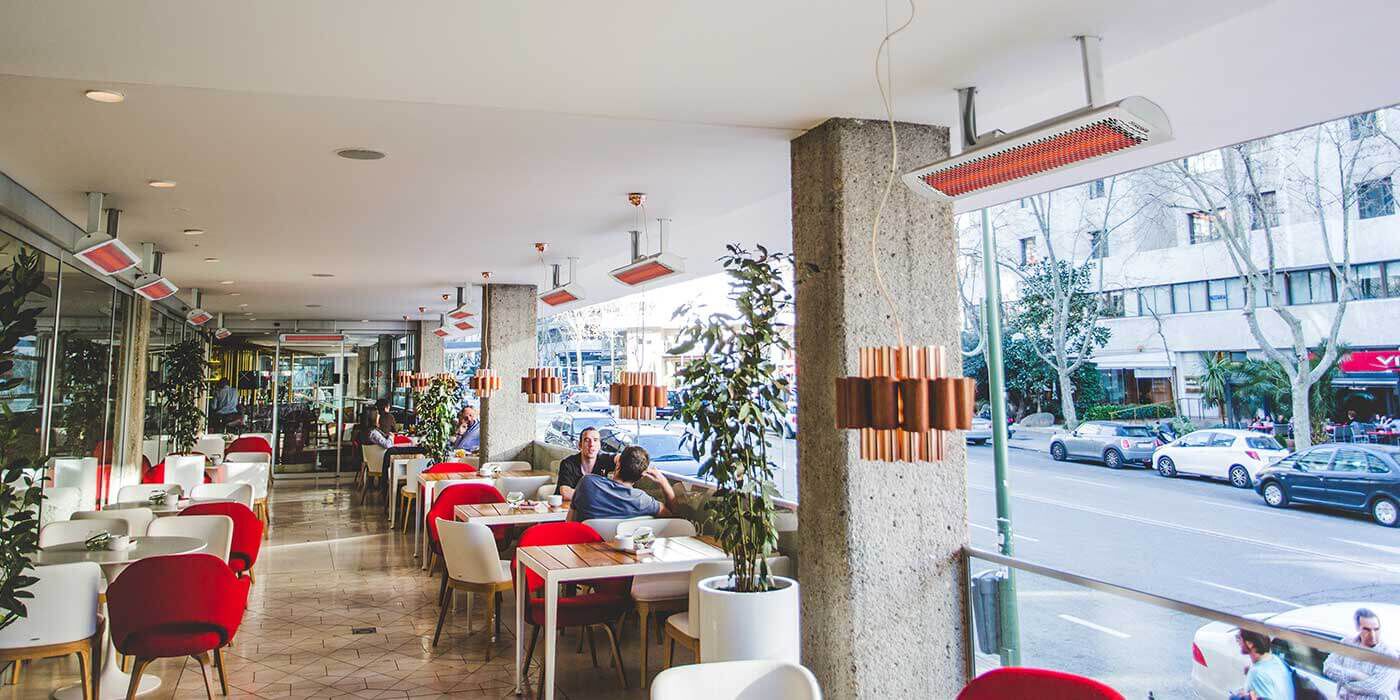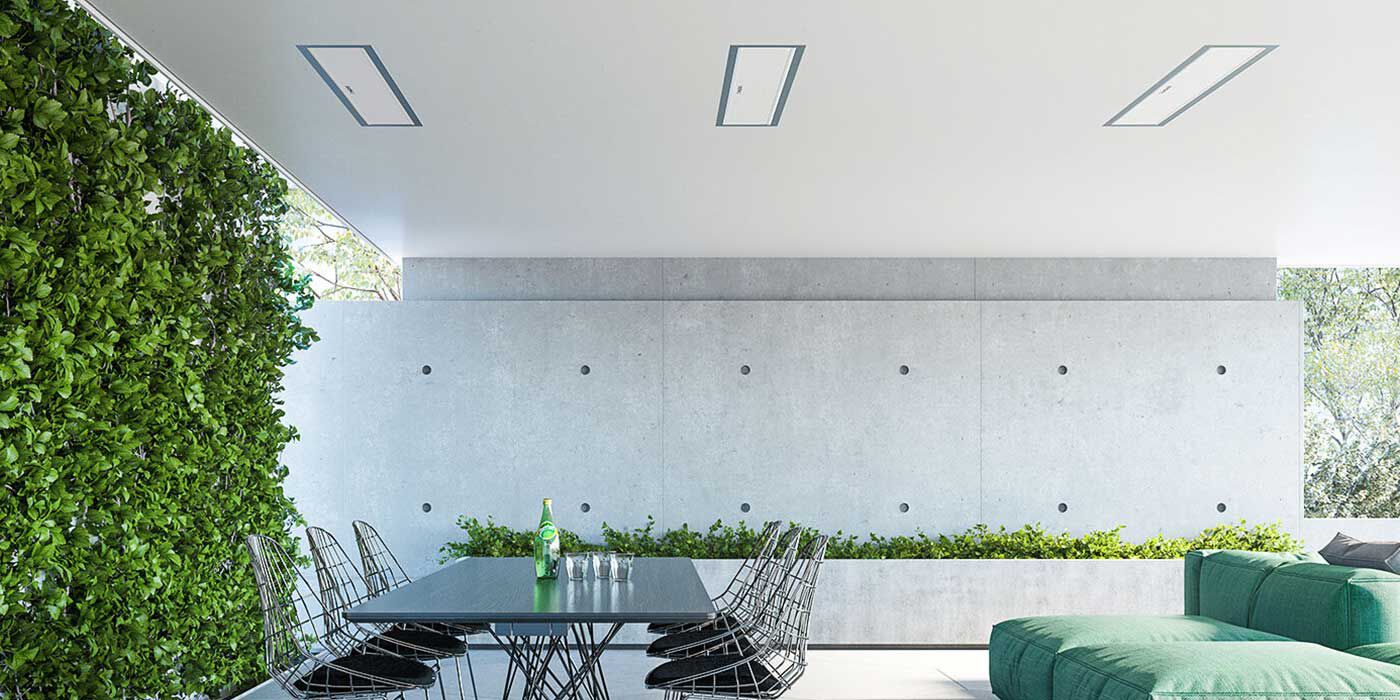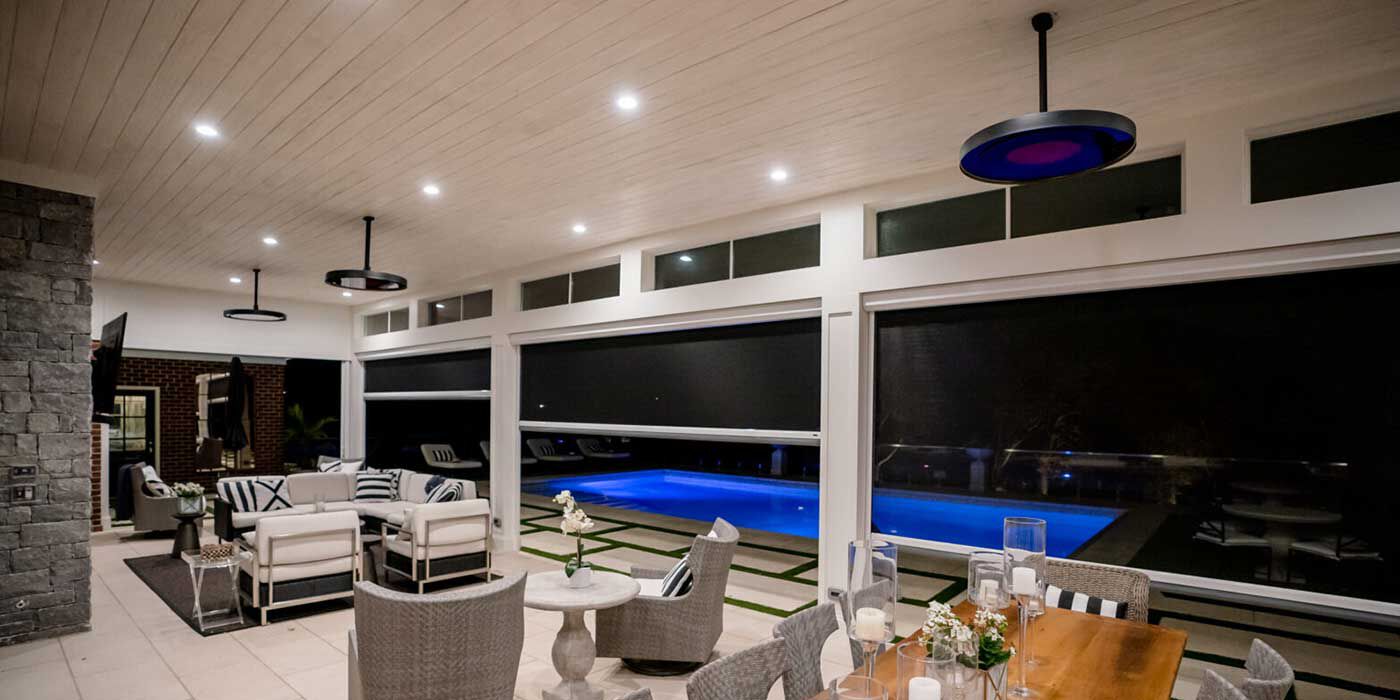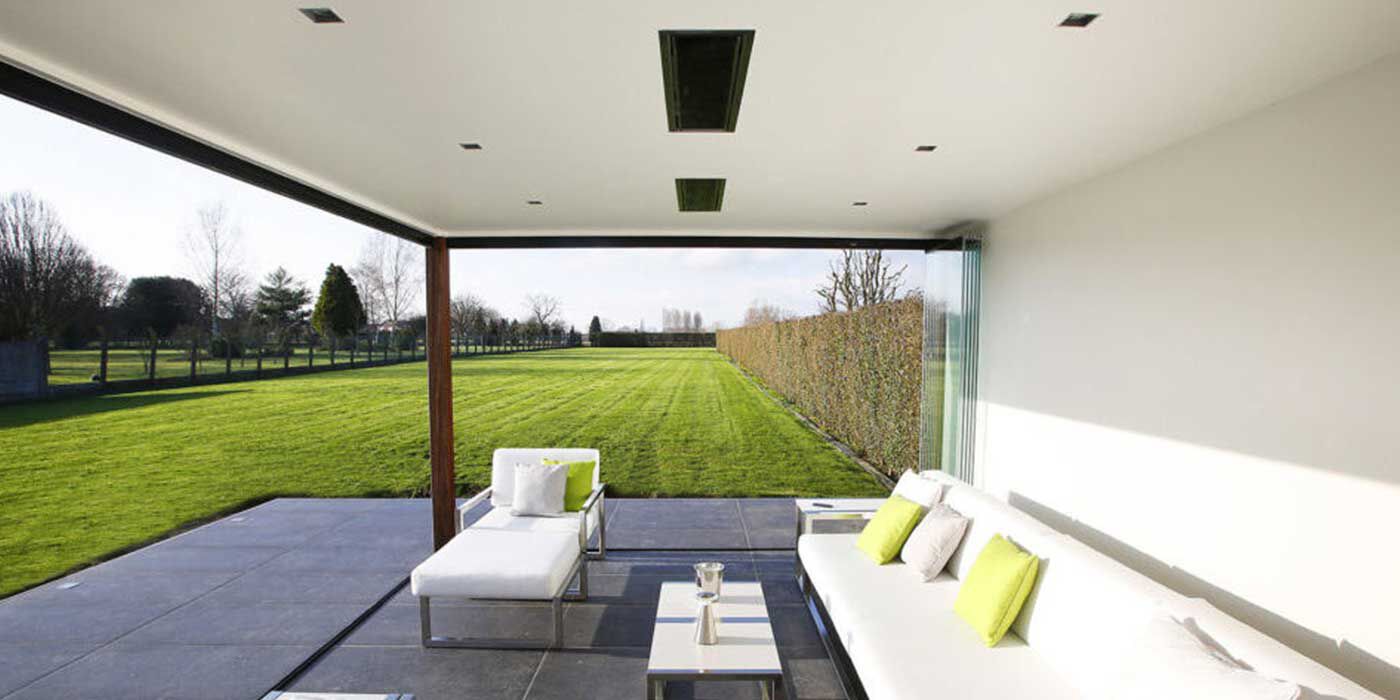By: Nick Janco, NFI Certified Master Hearth Professional
Last Updated: October 22, 2024
Electric patio heaters are an efficient and convenient solution for extending outdoor living into cooler months.
Whether you're looking to keep your patio warm for gatherings or simply enjoy the outdoors comfortably, these heaters provide instant heat at the flip of a switch.
They come in a variety of styles, from wall-mounted units to portable models, and offer eco-friendly, cost-effective warmth without the need for gas or wood.
This article will explore the key features, types, and benefits of electric patio heaters, helping you choose the right one for your space.
What are the Benefits of Electric Patio Heaters?
- Converts up to 98% of energy to heat
- Safe for indoor and outdoor use
- No flames, toxic smoke, emissions, or greenhouse gases
- Radiant heat warms people and objects, rather than the air
- Heat can be controlled easily with remote or wall switch
- Zone heating and smart home integration
- Large range of sizes
- Can be professionally installed for permanent use
- Easy to set up, maintain, and clean
- Less expensive than Propane
Installation Requirements & Heat Output
Electric patio heaters are available in both portable and mountable styles.
Some heaters can plug into a standard 120-volt wall socket, while most electric heaters require higher voltage to produce a greater amount of heat at once.
For heaters that require higher voltage, the proper wiring will need to be installed by a licensed professional.
Electric patio heaters are the most efficient style available. They convert up to 98% of their energy into heat using a method of heat transfer, called radiant heat.
Radiant heat is transferred directly to a person or object, so no energy is wasted on warming the air. The heat created won’t get carried away by the wind, making it the most effective way to heat your outdoor space.
Wall and ceiling-mounted electric patio heaters use directional heat to warm a specific area, rather than heating in a circular region, like most free-standing patio heaters.
Some mountable styles also come with adjustable brackets, so you can move the heat around as needed.
Control Options
One benefit of electric patio heaters is the large variety of control options available. They range from simple on/off switches to complex systems that can be integrated into a smart home.
Most control options are brand specific, so you'll want to research each brand to find the one that fits your lifestyle the best.
On/Off Switch
A switch is a convenient, low-cost way to turn your patio heaters on and off. They can be installed in a wall or surface-mounted. For dual-element heaters, you can install a stacked switch to control each heating element independently.

Variable Control
Variable controls let you control the intensity of the patio heaters. They can come with dimmers, timers, or cycle the heaters on and off at regular intervals to maintain a specified temperature in your space.

Hand-Held Remote
A remote lets you control the heaters wirelessly. Basic remotes will simply turn the heaters on and off. More complex remotes feature dimmers and/or have several transmission channels that you can program to fit your individual needs.

Timer
Timers can be installed with other control systems and let you program the amount of time the patio heaters are on.

Smart Home Integration
Some heating controls can be connected to a smart home system. This lets you program heating options, save your preferred settings, and gives you the ability to control the heaters off-site with your mobile device.

What is Zone Heating?
Zone heating is a way to group electric patio heaters together into specific heating zones, giving you the ability to adjust the heat output from one or more heaters in a designated area.
The heaters are hardwired to a specified control box and can be operated with a hand-held remote or wall-mounted control panel.
Each zone can be controlled independently, providing you with an easy way to achieve and maintain the optimal temperature desired, throughout your space.
Installation Cost
The cost to operate electric patio heaters is between Propane and Natural Gas styles – they cost less than Propane, but higher than Natural Gas.
The heating power of an electric heater is measured in watts, rather than BTUs. The higher the wattage, the more warmth you’ll get.
Use this simple equation to determine how many Watts you need to heat your space:
Cubic feet of area x desired temperature rise = Watts needed
How to Determine Cost Per Hour
To determine how much your electric patio heater costs per hour, you’ll need to know the maximum amount of watts your heater consumes and your local rate for a kilowatt hour (kw/hr).
The watts will be located on the heater, or in the owner’s manual, and you can find your local kilowatt per hour (kw/hr) rate on your monthly utility, statement.
Use this equation: (Watts / 1,000) x kw/hr = total cost per hour
Take the total watts and divide by 1,000. This will convert watts into kilowatts.
Multiply the kilowatts by the kw/hr rate from your utility statement. This will give you the total cost per hour.
For example, if you have a heater that consumes 6,000 watts and your kw/hr rate is 15 cents, your total cost would be 90 cents per hour to operate the heater:
(6,000 watts / 1,000) x .15 = .90, or 90 cents per hour.
To get the total daily cost, multiply the total cents per hour by the amount of hours you use it each day.
Safety Considerations
Electric patio heaters don’t require ventilation, so they can be used in both indoor and outdoor spaces. They produce zero carbon emissions and greenhouse gases, making them the most environmentally conscious choice.
Even though electric heaters don’t produce actual flames, they still get extremely hot, so always take precaution while operating them.
For the safest options, look for patio heaters that are UL approved and CSA tested. These approvals ensure each heater has undergone rigorous testing to verify that they are a reliable and safe heating appliance.
How to Take Care of Your Electric Patio Heater
To keep your patio heaters fully functional, inspect all electrical connections annually to make sure there aren’t any damaged wires or cords. Checking the connections regularly will ensure your heaters stay clean and in proper working order.
Before cleaning your patio heaters, make sure they are turned off, disconnected from the power source, and completely cool to the touch. Never disassemble the heaters and only clean the outside surfaces.
Follow the cleaning guidelines provided in your owner’s manual. The manual will tell you how often to clean the heaters, along with acceptable products and cleaning techniques to use.
Keep Your Patio Open Year-Round
We're Here to Help
Do you have more questions for us? Contact one of our NFI Certified experts at (800) 919-1904 today!
More Resources
Head over to our Patio Heater Buying Guide to learn even more about patio heaters!
Check out our Patio Heater FAQ page for answers to the most commonly asked questions about patio heaters.
Read our Patio Heater Spotlight to find out more about our brands and product offering!
 |
Nick Janco is a seasoned Technical Sales Representative with a decade of experience at Woodland Direct. As an NFI-Certified Master Hearth Professional, Nick is dedicated to helping his clients seamlessly integrate fire features into their homes, ensuring every detail is perfectly executed. While he's trained to assist with any fire-related project, Nick specializes in patio heaters. He's helped thousands of satisfied clients find the best heating solutions, offering valuable design, safety, and installation advice. Outside of work, Nick often spends time on the green enjoying a round of golf with his 5-year-old son. Call Nick or one of our experts in fire at 800.919.1904. |



